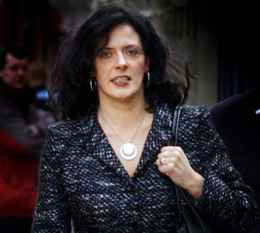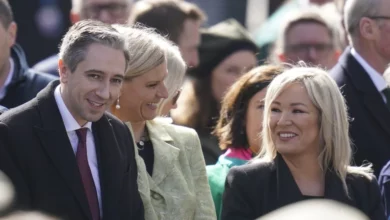Suzanne Breen non rivela i nomi degli informatori
Journalists’ sources must remain a secret
 It should come as no surprise to anyone that journalist Suzanne Breen is refusing to hand over the names of contacts to the PSNI in spite of the threat of legal action against her.
It should come as no surprise to anyone that journalist Suzanne Breen is refusing to hand over the names of contacts to the PSNI in spite of the threat of legal action against her.
She is merely adhering to a long-standing journalistic tradition where sources of information are regarded as sacrosanct. In this case the police are asking for information about the Real IRA following Ms Breen’s interviews with alleged members of the dissident republican group. The police suggest that the information she has could help in their investigation of the killing of two soldiers in Antrim two months ago.
There are members of the public who might feel that Ms Breen’s civil duty outweighs her professional code of conduct. They may well wonder why anyone who has any information which could lead to the apprehension of those involved in the killing of the soldiers would be reluctant to hand that information over. There are a number of points to be considered. Firstly, there is no evidence that the journalist has information directly connected to the killings. Secondly, it is not the job of journalists to gather evidence which may put a person behind bars — that is the task of the police.
Two other important considerations must be taken into account. If Ms Breen was to hand over the information requested — which may well be simply a fishing expedition by the PSNI — it would undoubtedly put her life in jeopardy. As she quite rightly points out, a paramilitary gang that had no compunction about opening fire on pizza delivery workers in the murderous attack on the soldiers would not hesitate to exact revenge on her if her co-operation with police led to the arrest of members. The other consideration — and of equal importance — is the need for journalists to be seen as conduits of information which do not place the source of that information at risk of disclosure. Take, for example, the case of Ian Paisley Jnr, who was given information that alleged the Prison Service destroyed thousands of documents in the aftermath of the killing of LVF leader Billy Wright in the Maze prison. Mr Paisley has refused to disclose the name of the person who gave him that information. It is obvious that that information would not have come into the public domain had the politician not given his word that he would keep his informant’s identity secret. Mr Paisley has no more legal right than Ms Breen to keep his contact’s identity guarded, but he has an ethical duty to do so.
Journalists play an important role in bringing to the public’s attention information that many people, often people in authority, would want to remain hidden. Often that information is gained through whistleblowers or contacts built up over a period of time. Those contacts or whistleblowers want absolute assurance that their identities will remain hidden. Journalists traditionally give that assurance. It should also be remembered that on many occasions the police decline to give information the Press feel should be made public. In those cases journalists have to try to obtain the information in other ways. That is the option open to the PSNI in this case. In the meantime, Ms Breen is upholding a valued journalistic tradition and deserves support for her stance.




